Justin Taylor's Blog, page 257
December 12, 2011
Dickens and Handel on the Meaning of Christmas
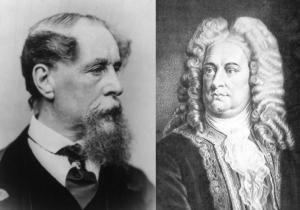 Tony Reinke:
Tony Reinke:
For Dickens, Christmas is a reminder that we are all Scrooges, self-centered ungrateful nobs who yet have some hope of appeasing God through our personal reform.
For Handel, Christmas reminds us that we are all sinners, we are "in Adam," and for that we are helpless to stop God's righteous judgment towards our sin. Yet there is One who has paid the price to quench God's wrath on our behalf.
In both A Christmas Carol and Messiah, our warm tranquil Hallmark Christmas sentimentality gets blasted by cold reality. Death is coming for us all, and the grave is approaching quickly.
Dickens wants people to die in peace.
Handel wants people to get raised from the dead.
Dickens' hope is rooted in the future – in the finished work of moral reform necessary in our lives.
Handel's hope is rooted in the past — the full and complete work of Christ on our behalf. Dickens' message is "do." Handel's message is "done."
Dickens' work is good for what it is, a seasonal, warmhearted morality tale. For that I find it agreeable and commendable.
But Handel's work comprehends the scope of the hope-giving and guilt-freeing meaning of Christmas. For that I find eternal comfort, and hope for my ongoing battle against my inner self-centered, thankless Scrooge.
Read the whole thing here.
A Practical Way to Help the Nations Receive Theological Education
 There are many good ways to invest in the kingdom. But let me mention one ministry you may not have heard of: Training Leaders International, launched by Bethlehem Baptist Church in 2009.
There are many good ways to invest in the kingdom. But let me mention one ministry you may not have heard of: Training Leaders International, launched by Bethlehem Baptist Church in 2009.
It's not an exaggeration to say that there is a crisis of theological education around the world, especially with respect to the need and to the call of the Great Commission. TLI is responding to the need in three ways:
They send short-term teams to provide theological education.
They serve as a sending agency for those interested in teaching overseas.
They start schools in places where formal education is lacking.
They currently have 22 trips planned for 2012.
Here are a few things that others are saying about this ministry:
The vision of Training Leaders International—bringing together Christian pastors who have enjoyed the privileges of training with Christian pastors in cultures where there are few opportunities for training—is proving fruitful and encouraging. It brings biblical and theological content to the people best positioned to pass it on to others. Most forms of short-term mission are fraught with troubling downsides, but this pattern of transferring serious theological nourishment is enriching both parties to the glory of God.
—D.A. Carson, Research Professor of New Testament at Trinity Evangelical Divinity School
I love the goal of international, Christ-exalting, theological famine relief. And I love the way God has raised up Training Leaders International to meet that need with real live, Spirit-filled, human teachers, on the ground, face-to-face with seasoned and emerging pastors and Christian leaders who have little or no opportunity for in-depth theological training. So I thank God for Darren Carlson, and the amazing ministry God is gathering around his vision. May the word of the Lord run and be glorified!
—John Piper, Pastor for Preaching and Vision at Bethlehem Baptist Church
We live in a time that is marked by a great urgency to reach the unreached, but often with a speed that leaves thousands of people groups without a missionary presence to provide essential discipleship, pastoral preparation, and theological education. Training Leaders International serves the Kingdom of Christ by answering this great need, reminding us all that to whom much is given, much is expected. Through practical pastoral training marked by a love for Christ and a commitment to Truth, TLI is impacting the church around the world to the glory of God.
-David Sills, A.P. and Faye Stone Professor of Christian Missions and Cultural Anthropology at Southern Seminary
TLI's vision and approach are having worldwide impact in training Christians for leadership. And the flow of blessing is proving to be two-way: those who travel to train others also find themselves transformed. The result is strengthened leadership on both the "sending" and "receiving" ends. The whole church is built up in knowledge, in service, in worship, and in unity. I thank God for this significant ministry and movement.
—Robert Yarbrough, Professor of New Testament at Covenant Seminary
If you are interested in participating in a trip, you could go to TLI for more information.
They are also facing a significant year-end need, if any feel led to give to a ministry that is making a real difference around the world.
December 11, 2011
Sam Storms: Top Ten (!) Books in 2011
Guest Post by Sam Storms
The exclamation mark after the number Ten should be noted. As you will shortly see, I failed miserably in my attempt to restrict the list to precisely ten books. Perhaps I should have titled this article, "My Top Ten Categories of Books of the Year," insofar as I've included several volumes that tend to fall into the same genre. In any case, there are simply too many excellent works to exclude them because of the supposed sanctity of the number Ten. I'll start with number ten and move to number one.
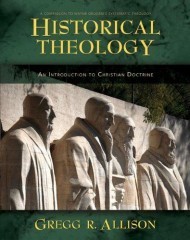
(10) Historical Theology: An Introduction to Christian Doctrine , by Gregg R. Allison (Grand Rapids: Zondervan, 2011), 778pp.
My good friend Gregg Allison has written a companion volume to Wayne Grudem's Systematic Theology that traces the main themes of Christian theology through the centuries of church history. It is both deep and wide and will prove to be the standard evangelical contribution to this area of study for quite some time to come.
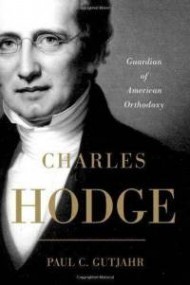 (9)
G. K. Chesterton: A Biography
, by Ian Ker (Oxford: Oxford University Press, 2011), 747pp., and
Charles Hodge: Guardian of American Orthodoxy
, by Paul C. Gutjahr (Oxford: Oxford University Press, 477pp.
(9)
G. K. Chesterton: A Biography
, by Ian Ker (Oxford: Oxford University Press, 2011), 747pp., and
Charles Hodge: Guardian of American Orthodoxy
, by Paul C. Gutjahr (Oxford: Oxford University Press, 477pp.There's a tie for number nine. These two excellent biographies are both published by Oxford and therefore are both incredibly expensive. [JT note: the Hodge one is now available in paperback, though.] But they're worth it, especially the one on Hodge. This is in fact the first extensive biography of the great 19th century Princeton theologian, and was followed late this year by yet another written by Andrew Hoffecker (which I haven't seen yet). When I attended Dallas Seminary in the 70′s, I read Hodge's 3-volume Systematic Theology with a relish. I will always be indebted to his work.
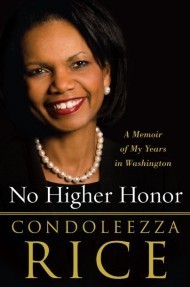
(8) No Higher Honor: A Memoir of My Years in Washington , by Condoleezza Rice (New York City: Crown Publishers, 2011), 766pp.
I've only started to dip into this massive volume, but I've come to greatly appreciate Condi Rice and only wish that she had entered the race for the Republican presidential nomination.
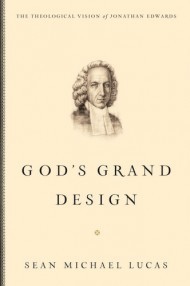
(7) God's Grand Design: The Theological Vision of Jonathan Edwards , by Sean Michael Lucas (Wheaton: Crossway, 2011), 224pp.
This is one of the most readable and enjoyable introductions to Edwards and his theology that you'll find. However, I almost didn't include it on my list, not for what it says but for what it omits. Lucas concedes "that there is a major gap in this book; there is not a significant direct reference to Edwards's Freedom of the Will" (199). His reasons are two: First, he says "it is difficult to understand" (199), which it is. Second, he believes that it is not "very relevant to the Christian life" (199). "I know that others would disagree with me," writes Lucas, 'but there it is" (199). Yes, I profoundly disagree, as Freedom of the Will in many ways provides the foundation for our need of grace, explains the nature of conversion, and magnifies the sovereignty of God in our salvation. He also admits not including anything about The Life of David Brainerd. "Brainerd," he says, "strikes me as overly morose and inward" (200). Yes, I agree, but it is still a powerful and important work. Read Lucas, but only after you've first read Freedom of the Will and The Life of David Brainerd!
Since I'm on Edwards, I'll also include two more that I hope prove worthy of inclusion in a list like this. Jonathan Edwards's Apologetic for the Great Awakening (with particular attention to Charles Chauncy's Criticisms), by Robert Davis Smart (Grand Rapids: Reformation Heritage Books, 2011), 366pp., looks to be a winner, but I've only just started it. I've also only briefly glanced at John J. Bombaro's Jonathan Edwards's Vision of Reality: The Relationship of God to the World, Redemption History, and the Reprobate (Eugene: Pickwick Publications, 2012), 327pp.
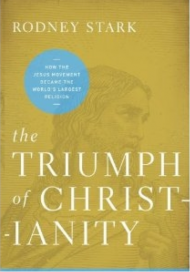 (6)
The Triumph of Christianity: How the Jesus Movement Became the World's Largest Religion
, by Rodney Stark (New York: HarperOne, 2011), 506pp.
(6)
The Triumph of Christianity: How the Jesus Movement Became the World's Largest Religion
, by Rodney Stark (New York: HarperOne, 2011), 506pp.This is the second year in a row that a book by Rodney Stark appears on my Top Ten list. Last year it was God's Battalions: The Case for the Crusades, which will challenge every myth you've ever believed about the Crusades. In this volume, which is something of a sequel to his 1996 volume, The Rise of Christianity: How the Obscure, Marginal Jesus Movement Became the Dominant Religious Force, Stark conducts a fascinating survey of "selected important episodes and aspects of the Christian story through the centuries" and assesses them from "new perspectives" (2). He is quite clear that this "is not another general history of Christianity" (2), so don't read it with expectations of finding a comprehensive treatment of church history. As always, Stark is controversial and challenging, but never dull.
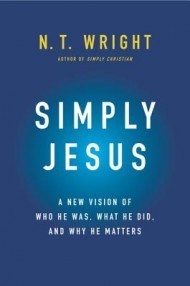 (5) Simply Jesus: A New Vision of Who He Was, What He Did, and Why He Matters, by N. T. Wright (New York: HarperOne, 2011), 240pp.
(5) Simply Jesus: A New Vision of Who He Was, What He Did, and Why He Matters, by N. T. Wright (New York: HarperOne, 2011), 240pp.What can one say about N. T. Wright? He is at one moment exhilarating and at another somewhat annoying. I found myself scratching my head at one moment and wanting to underline virtually every word and sentence the next. He is without question one of the most gifted writers in the Christian world. One has to be somewhat guarded in reading Wright, if only because of the unconscious tendency to embrace as true all he says simply because he says it so doggoned eloquently! In any case, this is an excellent book. It is something of a popularized merging of his massive and technical Jesus and the Victory of God and his smaller volume The Challenge of Jesus. In any case, get it. If you've never read Wright, this is a great place to start. You don't have to agree with everything he says (I don't) to profit immensely from his insights into to who Jesus is and what he did.
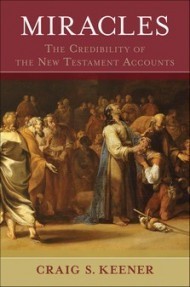 (4) Miracles: The Credibility of the New Testament Accounts, by Craig S. Keener, 2 volumes (Grand Rapids: Baker Academic, 2011), 1172pp.
(4) Miracles: The Credibility of the New Testament Accounts, by Craig S. Keener, 2 volumes (Grand Rapids: Baker Academic, 2011), 1172pp.There's no way to adequately explain the extent of information provided by Keener in these two huge volumes. He addresses virtually everything you might ever want to know about biblical miracles and their credibility. He responds to anti-supernatural critics and then proceeds to document hundreds of miracles throughout the modern world.
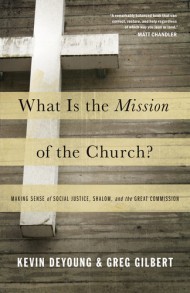 (3)
What Is the Mission of the Church? Making Sense of Social Justice, Shalom, and the Great Commission
, by Kevin DeYoung and Greg Gilbert (Wheaton: Crossway, 2011), 283pp.
(3)
What Is the Mission of the Church? Making Sense of Social Justice, Shalom, and the Great Commission
, by Kevin DeYoung and Greg Gilbert (Wheaton: Crossway, 2011), 283pp.This one has certainly been controversial since its release. I'm not sure why, because I found it entirely persuasive and extremely helpful.
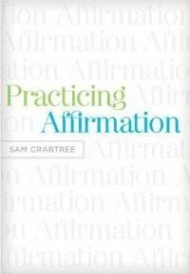 (2)
Practicing Affirmation: God-Centered Praise of Those Who Are Not God
, by Sam Crabtree (Wheaton: Crossway, 2011), 176pp.
(2)
Practicing Affirmation: God-Centered Praise of Those Who Are Not God
, by Sam Crabtree (Wheaton: Crossway, 2011), 176pp.I simply had to include this short yet eminently practical and pastoral book by Sam. This is a book everyone should read, and then practice. I have my staff reading it and we distributed copies to all those who lead our small groups at Bridgeway. In the long run, it may prove to be the most beneficial and edifying of all those listed here in 2011.
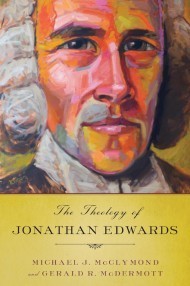 (1)
The Theology of Jonathan Edwards
, by Michael J. McClymond and Gerald R. McDermott (Oxford: Oxford University Press, 2012), 757pp.
(1)
The Theology of Jonathan Edwards
, by Michael J. McClymond and Gerald R. McDermott (Oxford: Oxford University Press, 2012), 757pp.In case you don't remember, or didn't read last year's list, I included this volume among those to look for in 2011. Its actual publication date is 2012, but I've got it and I'm already deep into what may well prove to be the finest single volume treatment of Edwards ever written. I've read virtually everything that both McDermott and McClymond have written about Edwards over the years, and it's wonderful to see them collaborate on this incredible book. It's big and expensive but worth every dollar!
Until next year,
Sam
Did Jesus Think the Book of Jonah Was Historical?
In Jesus' confrontations with the Pharisees, he declares: "The men of Nineveh will rise up at the judgment with this generation and condemn it, for they repented at the preaching of Jonah, and behold, something greater than Jonah is here" (Matthew 12:41).
It seems to me that the judgment of T. T. Perowne, written over 100 years ago, still stands up:
Is it possible to understand a reference like this on the non-historic theory of the book of Jonah?
The future Judge is speaking words of solemn warning to those who shall hereafter stand convicted at his bar.
Intensely real he would make the scene in anticipation to them, as it was real, as if then present, to himself.
And yet we are to suppose him to say that imaginary persons who at the imaginary preaching of an imaginary prophet repented in imagination, shall rise up in that day and condemn the actual impenitence of those his actual hearers.
—T. T. Perowne, Obadiah and Jonah (Cambridge, 1894), p. 51. My emphasis.
A very important book looking at Jesus' view of the Old Testament is John Wenham's Christ and the Bible.
December 9, 2011
Keeping Holiday: More Than a Christmas Story
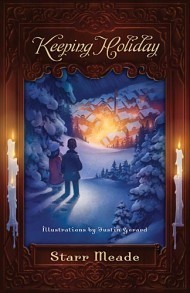 When Starr Meade's Keeping Holiday was first published by Crossway in 2008, I read the whole thing straight through. My kids were too young at the time, but I noted Jim Hamilton's comment about his wife reading it to their son: "she read it aloud to our five year old, and he never wanted her to stop reading and raved about it every night at dinner. This book accomplished the difficult task of capturing the heart of a homeschooling mother and a five year old boy." I've now started reading it to our 8-year-old and 6-year-old. The genre is something of a cross between Pilgrim's Progress and The Lion, the Witch, and the Wardrobe.
When Starr Meade's Keeping Holiday was first published by Crossway in 2008, I read the whole thing straight through. My kids were too young at the time, but I noted Jim Hamilton's comment about his wife reading it to their son: "she read it aloud to our five year old, and he never wanted her to stop reading and raved about it every night at dinner. This book accomplished the difficult task of capturing the heart of a homeschooling mother and a five year old boy." I've now started reading it to our 8-year-old and 6-year-old. The genre is something of a cross between Pilgrim's Progress and The Lion, the Witch, and the Wardrobe.
Here's an interview that Crossway did with the author:
Q: Who should read Keeping Holiday? Is it really a Christmas story?
A: The best stories in children's literature—works by C. S. Lewis, George MacDonald, Kenneth Grahame—are enjoyable for people of any age, and I would like to think that's true of Keeping Holiday as well. It's a Christmas story and more than a Christmas story.
Q: What's meant by the title, Keeping Holiday, and what's the basic storyline?
A: The title is a play on words. "To keep holiday" can mean to celebrate a specific holiday. That's one meaning; how do we most fully celebrate the Christmas holiday? The other meaning has to do with the story: Dylan goes to the delightful town of Holiday once a year on vacation and would like to just stay there. Since that's not possible, his parents tell him he'll need to find a way to "keep Holiday—" to have it with him all year, wherever he is. Early in the story, Dylan discovers that the Holiday he always visits is not the real Holiday; there's a larger, much more wonderful Holiday behind it. He also learns, however, that only citizens of Holiday can come and go in the real Holiday, and that only the Founder of Holiday can make you a citizen. So the story is Dylan's visit to the real Holiday on a temporary pass, in search of the Founder and citizenship. Each adventure that he has on his quest and each character he meets shows him more of what the Founder is like, so that, increasingly, his desire for citizenship in Holiday changes into a desire to know the Founder for his own sake.
Q: But Dylan keeps hearing, "You can't find the Founder; he finds you; he's not just the Founder; he's the Finder too." What does that mean?
A: Holiday was established many years ago to honor a King who saved the town from the rule of evil, oppressive tyrants; hence, that King is called "the Founder." Everyone who knows anything at all about the Founder tells Dylan he can't find him; the Founder will have to find Dylan. Just as, on the first Christmas, people didn't go get the Son of God from heaven and bring him to earth, so individual people don't set out to find Christ and his grace; they aren't even able to do that. Christ in his grace reaches out and saves them. Biblically, all the credit for coming to the earth as Savior and for coming to any individual as Savior belongs to Christ alone.
Q: You've said that one purpose of the book is to give readers a fresh way to look at the Incarnation. How does Keeping Holiday accomplish this?
A: My favorite parts of the Bible are the Old Testament prophets. They paint their word pictures in such extreme shades of dark and light that you come away from them horrified by the bleakness of the human condition and, consequently, wonderfully relieved by the hope and comfort they hold out in their promises of the coming Messiah. The experiences Dylan has—being entombed in a cave, being lost in absolute darkness, wandering across a barren winter landscape—are meant as pictures of humanity's condition, and each individual's condition, before the coming of Christ.
Q: What would you consider the best use of Keeping Holiday?
A: I hope families will read Keeping Holiday together, maybe even as a holiday tradition. It helps draw attention to what Christ has done for his people and how ordinary Christmas decorations remind us of those things. This could enhance a family's worship and celebration during Advent season. At the same time, Keeping Holiday brings up for discussion many doctrinal aspects of the salvation God provides, and his ways of working in the human heart, providing a springboard for discussion of these kinds of issues on a personal level, between parents and children.
"I love it. In reading Keeping Holiday, I was reminded of John Bunyan's Pilgrim's Progress and C. S. Lewis's Chronicles of Narnia. It is delightful reading that pulls you into the adventures of Dylan and Clare and tells the story of God's work in the lives of those who are called according to his purpose. Children from 8 to 78 will be captivated by this spellbinding story."
—R. C. Sproul, President, Ligonier Ministries; author of The Barber Who Wanted to Pray
"This charming story should be repeatedly read and savored. It has the enduring and endearing quality of a good story—it lingers. It causes one to ponder gospel truth and to celebrate the Holy One of Holiday."
—Susan Hunt, author of Sammy and His Shepherd
You can download an excerpt or look at it below:
How to Revitalize Christian Journalism
A free book online from Marvin Olasky.
10-Year-Old Blind, Autistic Boy Sings "Open the Eyes of my Heart"
10-year-old Christopher Duffley was born premature, blind, and autistic, and was adopted by his parents at 15 months of age. God has given him the gift of music:
HT: John Knight
Calvinism Today: A SWOT Analysis
In his new book For Calvinism Michael Horton entitled his final chapter "Calvinism Today: A SWOT Analysis." He writes:
We know from daily experience that our greatest strengths can also become our greatest weaknesses.
Persistence can become stubbornness; sympathy can devolve into sentimentality; and genuine concern for others sometimes turns into an obsequious craving for approval.
Remarkable gifts of leadership and creativity can be used for good or ill, depending on the motivation and the goals.
The same is true of movements, since they are largely the collective activity of people like us.
It has become popular for businesses and organizations to conduct a periodical "SWOT" analysis, exploring
Strengths,
Weaknesses,
Opportunities, and
Threats.
Since acrostics appeal to "TULIP"-loving Calvinists, this kind of analysis may be a useful in-house evaluation, although I do not presume to speak for anyone other than myself. (p. 170)
As Andy Naselli points out, this chapter is divided into two sections along these lines:
(1) Strengths and Weaknesses
Intellectual Boldness/Cold Intellectualism
Love for Truth/Factionalism
Respect for Tradition/Traditionalism
(2) Opportunities and Threats
Revived Interest in the Doctrines of Grace/Replacing the Church with a Movement
A New Interest in Sound Doctrine/A New Fundamentalism
Andy excerpts the section on love for truth and factionalism, if you want to see how Horton applies these warnings and encouragements.
Top Ten Books of 2011
'Tis the season for such lists.
Here is Kevin DeYoung's.
Kevin also asked a few publishers to highlight some forthcoming books for 2012.
How to Apply Scripture When It Does Not Speak Directly and Personally to You
Here is a core dilemma for Bible readers.
On the one hand, we are told that "whatever was written in former days was written for our instruction, that through endurance and through the encouragement of the Scriptures we might have hope" (Rom. 15:4). Likewise, we believe that "all Scripture is breathed out by God and profitable for teaching, for reproof, for correction, and for training in righteousness."
But sometimes it is hard to see how. As David Powlison says, "Most of the Bible does not speak directly and personally to you." He lists some examples:
How do you "apply" the stories in Genesis?
What about genealogies and census data?
Leviticus?
The life stories of Esther, Job, Samson, or Paul?
The distribution of land and villages in Joshua?
The history of Israel's decline detailed through 1 and 2 Kings?
The prophetic woes scorching Moab, Philistia, Egypt, and Babylon, fulfilled so long ago?
The ruminations of Ecclesiastes?
The Gospel stories showing Jesus in action?
The New Testament's frequent preoccupation with Jew-Gentile relations?
The apocalyptic images in the Revelation?
He goes on:
The Bible's stories, histories, and prophecies—even many of the commands, teachings, promises, and prayers—take thoughtful work in order to reapply with current relevance.
If you receive them directly—as if they speak directly to you, about you, with your issues in view—you will misunderstand and misapply Scripture. For example, the angel's command to Joseph, "take the child and his mother and flee to Egypt" (Matt. 2:13), is not a command to anyone today to buy a ticket to Egypt!
Those who attempt to take the entire Bible as if it directly applies today end up distorting the Bible. It becomes an omni-relevant magic book teeming with private messages and meanings. God does not intend that his words function that way.
"These passages," he writes, "do apply. But most of the Bible applies differently from the passages tilted toward immediate relevance."
What you read applies by extension and analogy, not directly. Less sizzle, but quietly significant. In one sense, such passages apply exactly because they are not about you. Understood rightly, such passages give a changed perspective.
They locate you on a bigger stage.
They teach you to notice God and other people in their own right.
They call you to understand yourself within a story—many stories—bigger than your personal history and immediate concerns.
They locate you within a community far wider than your immediate network of relationships.
And they remind you that you are always in God's presence, under his eye, and part of his program.
Powlison gives a couple of examples of applying "less-direct passages." One of them is Psalm 21:1, "O LORD, in your strength the king rejoices."
He writes:
The psalm is not talking about you, and it is not you talking—not directly. A train of connected truths apply this psalm to you, leading you out of yourself.
First, David lived and wrote these words, but Jesus Christ most fully lived—is now living, and will finally fulfill—this entire psalm. He is the greatest human king singing this song of deliverance; and he is also the divine Lord whose power delivers. We know from the perspective of NT fulfillment that this psalm is overtly by and about Jesus, not about any particular individual.
Second, you participate in the triumph of your King. You are caught up in all that the psalm describes, because you are in this Christ. So pay attention to his experience, because he includes you.
Third, your participation arises not as a solo individual but in company with countless brothers and sisters. You most directly apply this psalm by joining with fellow believers in a chorus of heartfelt gladness: "O Lord, we will sing and praise your power" (Ps. 21:13). The king's opening joy in God's power has become his people's closing joy.
Finally, figuratively, you are also kingly in Christ. In this sense, Jesus' experience of deliverance (the entire psalm) does apply to your life. Having walked through the psalm as an expression of the exultant triumph of Christ Jesus himself, you may now make it your experience too. You could even adapt Psalm 21 into the first person, inserting "I/me/my" in place of "the king" and "he/him/his." It would be blasphemous to do that at first. It is fully proper and your exceeding joy to do this in the end. This is a song in which all heaven will join. As you grasp that your brothers and sisters share this same goal, you will love them and serve their joy more consistently.
—David Powlison, "Reading the Bible for Personal Application," in the ESV Study Bible and forthcoming in the collection of essays, Understanding Scripture: An Overview of the Bible's Origin, Reliability, and Meaning (Crossway, 2012).
Justin Taylor's Blog
- Justin Taylor's profile
- 44 followers



